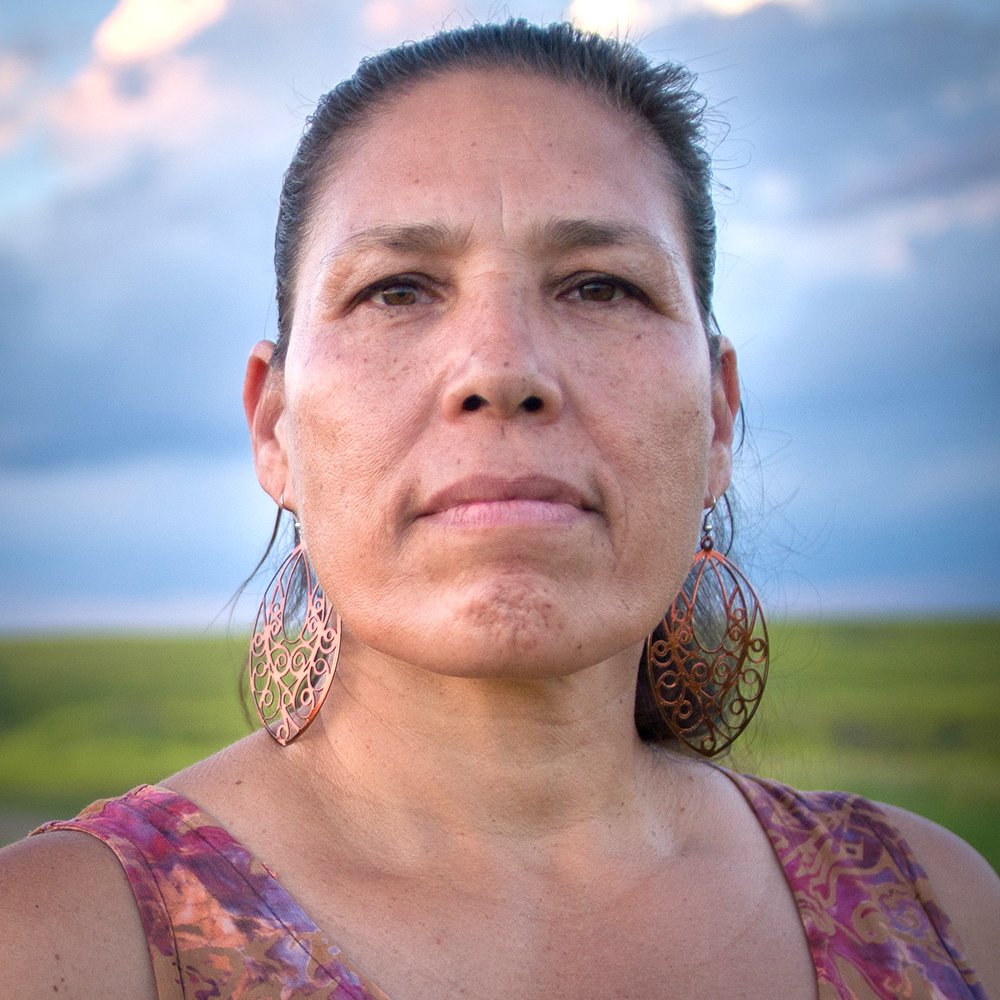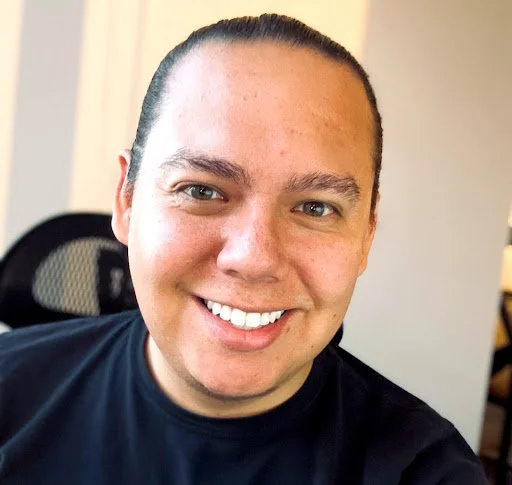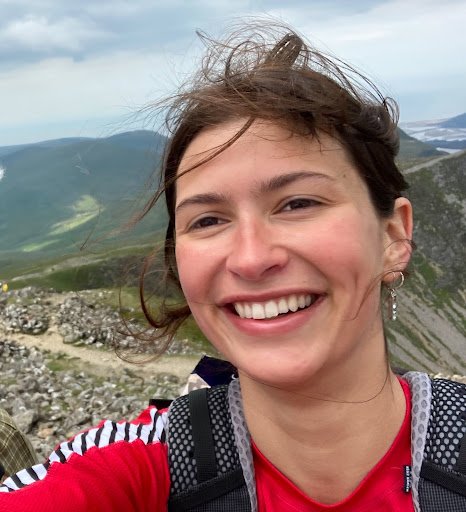
WHO WE ARE
We are an intergenerational collective of Native and non-Native activists, scholars and media makers committed to recovering and sharing the stories of Warrior Women who fought for Indigenous self-determination and cultural survival during the Red Power movement (1960s-1980s). We document these histories through oral history, activist archiving and community-accountable research & media production, and make them available and actionable to their home communities and wider audiences through decolonial learning experiences.
Beth Castle | Co-Founder, Director
I have spent the past 25 years working at the intersection of media, scholarship, and activism, as an anti-racist educator committed to liberating and sharing unknown histories of resistance. My career has focused on bridging the divide between academia and frontline communities through scholar-activism. While undertaking a Ph.D. at Cambridge University on women’s activism in the Black Panther Party and the American Indian Movement, I worked at White House for the President’s Initiative on Race. Later, I taught at Stanford University and Berkeley, and received the University of California Presidential Postdoctoral Fellowship from UC Santa Cruz, under the supervision of professors Angela Y. Davis and Bettina Aptheker. Between 2007-2013, I was Assistant Professor of American Indian Studies at the University of South Dakota, where I collaborated with students to produce the North American Indigenous Oral History Project. I taught at Denison where, with students, I created the Water Protectors Community Oral History Project in 2017 and most recently at Ohio State University. I took a break from teaching to co-direct the Peabody Award Nominated film, Warrior Women (2018) and co-founded the Warrior Women Project (WWP) to honor the legacies and share the living histories of Red Power matriarchs, many of whom I interviewed. I have served as WWP’s Director since the founding of the project in 2006. Guided by my firm belief in intergenerational collaboration, I frequently contribute my experience and expertise in oral history, community archiving and filmmaking to people and spaces that center the liberatory and world-making potential of education. In 2022-2023, I was a recipient of the National Endowment for Humanities-Oral History Association Fellowship in Oral History. Read the expanded bio here.
MARCELLA GILBERT | Co-Founder, Community Organizing Coordinator
I am an Oohenumpa Lakota and Ihunktuwan Dakota community organizer with a focus on food sovereignty and cultural revitalization. As the daughter of Madonna Thunder Hawk and a member of AIM Youth, I grew up inside the movement for Indigenous self-determination. I studied, protested, and organized as part of the We Will Remember Survival Group, and served as their delegate to the First UN Conference on Indigenous Peoples in Geneva, aged 17. Now, as a mother and grandmother, I continue to pass down the legacy of local & global Indigenous activism for future generations. I hold a Master’s in Nutrition from South Dakota State University, and have worked with Native communities and youth on food sovereignty projects to tackle disease and restore wellbeing. My ultimate goal is to reintroduce organic farming of traditional, sustainable foods to my reservation as an expression of the most fundamental form of survival and empowerment. Following in a long tradition of matriarchy and Native women’s leadership, I formed Nažó Society with Dawnee LeBeau as a space for women to gather and organize against the violence of environmental destruction. ‘Nažó’ means to “sound or blow the whistle in alarm” in Lakota, and we campaign to draw attention to the issues of Missing and Murdered Indigenous Women (MMIW). I have also worked for Simply Smiles, Inc., a non-profit organization operating on the Cheyenne River reservation in South Dakota, and was recognized by the Bush Foundation's Native Nations Rebuilders Program in 2014. I continue my community organizing work through the Warrior Women Project – connecting our history to contemporary struggles.
Madonna Thunder Hawk | Co-Founder & Community Organizer
I am an Oohenumpa Lakota from the Cheyenne River Sioux Reservation, and an OG AIMster with more than 60 years experience of working for Indian sovereignty, environmental justice and cultural reclamation. I’m a veteran of many modern Native American struggles – from the occupations of Alcatraz (1969), Mount Rushmore (1970), and Wounded Knee (1973) to the more recent #NODAPL and #LandBack movements. In the late 1960s, I became an organizer in the American Indian Movement (AIM), and while I have remained committed to national and international struggles for Indigenous sovereignty, I have anchored much of my organizing at the grassroots community level. In 1974, I set up the "We Will Remember Survival School" as a decolonizing space for Indian youth who had been pushed-out from the mainstream educational system. I also helped organize Women of All Red Nations (WARN) in 1978 and the Black Hills Alliance in 1979 to raise awareness of the racist-, gendered-violence of settler-colonialism. With Beth and Marcy, I co-founded the Warrior Women Project to ensure that the legacy of this movement activism lives on for future generations. More recently, I worked as the tribal liaison for the Lakota People's Law Project, fighting the illegal removal of Native children from tribal nations into the state foster care system. I have built upon this work with other women on Cheyenne River Reservation through the Waš’ágiya Nájiŋ "Grandmothers' Group", which aims to restore Lakota kinship networks. Alongside my work for Warrior Women, I currently serve as Director of Grassroots Organizing for the Red Road Institute.
Chris Sherertz | Media Manager & Editor
I grew up in Berkeley CA, and have always been behind the scenes – plugging in speakers, setting up sound systems, editing filmed speeches and interviews, and generally amplifying the leaders around me. I studied Astrophysics and Audio Engineering at UC Santa Cruz, and wound up building a community sound studio in a non-profit law office and met Madonna Thunder Hawk in 2008 filming a message to Obama from Lakota elders. For the past 15 years, I have worked as a cinematographer and video editor for several Native-led organizations, including Indigenous People’s Movement, Last Real Indians and Lakota People’s Law Project. My approach to visual storytelling centers narrators and the integrity of their narratives. In 2013, I filmed 40+ hours of family testimony at the Great Plains ICWA Summit, which helped to solidify the 2015 ICWA enforcement guidelines. In 2016, I spent time at the Oceti Sakowin camp, Standing Rock, documenting direct actions and related treaty meetings with Madonna and Phyllis Young. Much of my editing work has since focused on the Dakota Access Pipeline and related water issues, including the ongoing ‘Dakota Water Wars’ series being released by the Standing Rock Sioux Tribe. In 2021, together with Chase Iron Eyes and Chuck Banner, I produced 31 episodes of the live show ‘Cut to the Chase’ - including shows from D.C. and the front-lines of Line 3. Since 2021 I’ve worked to film and produce WWP’s community events and panels, and am currently building the oral history archive. I also play steel drums and release music under DJ Phyzk.
Wyatt Pickner | Team Organizer & Strategist
I am Hunkpati Dakota from Crow Creek, South Dakota. For more than 12 years I have been working with tribes, tribal organizations, and Native-serving organizations at local, regional, and national levels on research projects, capacity building, training, and community engagement. I became involved in the Warrior Women Project as an undergraduate at the University of South Dakota (USD), where I received bachelors degrees in Native Studies and Health Sciences. During my time at USD, I participated in the North American Indigenous Oral History Project, conducting oral histories with Indigenous activists who founded the global Indigenous movement at the United Nations in Geneva, Switzerland. I later attended the University of Washington for a Masters of Public Health, before working as a Program Manager for the Urban Indian Health Institute. My career focuses on the well-being of Native communities across the United States and strengthening Indigenous research methodologies within the field of Public Health. Alongside providing operations support for WWP, I work as Research Manager for the American Indian Cancer Foundation.
Morwenna Osmond | Research & Educational Programs Coordinator
I was born and raised in Cymru (Wales), with Cymraeg (Welsh) as my first language. My parents are both life-long organizers in struggles for Welsh self-determination and the protection and revitalization of Cymraeg. They continue to inspire my commitment to radical education and the survivance of “minority” languages. Aged 15, I was awarded a scholarship to the United World College of Costa Rica, where I joined a community of 170 students from over 70 countries for junior and senior year. After high-school, I trained as a teacher of English as a foreign language, and taught refugee and asylum-seeking children in Caerdydd and Bristol. I later studied History at Bristol University, and wrote my dissertation on American Indian women’s critiques of the second-wave feminist movement, relying heavily on oral history. It was through this research that I became involved in the Warrior Women Project. During this time, I also worked as a researcher for the Future Generations Commissioner for Cymru, supporting the implementation of the 2015 Future Generations Act which enshrines the rights and well-being of unborn generations into law. In 2021, I moved to New York, Lenapehoking, where I studied for a Master’s degree in Historical Studies from The New School as a Fulbright scholar. I have since worked to process WWP’s extensive oral history archive, conduct further interviews, and coordinate archival research. When I’m not nerding out on archival research and liberatory education models, I’m usually cooking for friends and family, painting, practicing yoga or hiking.
Ryia LeBeau | Designer & Oral Historian
I am Lakota and Diné, and belong to the Two Kettle Band at Cheyenne River. Descended from Chief Joseph Four Bear, an involuntary signer of the 1868 Fort Laramie Treaty, I grew up on the vast, open lands of the Oceti Sakowin. I am a Gates scholar studying Indigenous and American Indian Studies at Haskell Indian Nations University. An aspiring archivist and keeper of stories, I began documenting the extraordinary life story of my great-grandmother and WWII Army Nurse, Marcella LeBeau - before I knew to call it ‘archiving.’ I am currently working on a book manuscript about my great-grandmother. I am also a member of the Communities That Care project on the Cheyenne River Reservation, a youth group whose mission is to create a community where young people are healthy, culturally-grounded, confident in their identity. In 1998, my great-grandmother Marcella embarked on a journey to retrieve Indigenous cultural items on display at museums overseas, and in 1999, repatriated a Ghost Dance Shirt which was stolen from the body of a Lakota at the Wounded Knee Massacre in 1890. With my family, I continue this legacy by working to repatriate the remaining “cultural artifacts” from Wounded Knee held at Kelvingrove Art Museum in Glasgow, Scotland. I also continue the reputation my family’s matriarchs have for Indigenous arts, as a leather-worker.
Morgan Catlett-Ausborn | Public Programming & Exhibit Manager
I grew up in Rapid City, and graduated from the University of South Dakota in 2012 with a B.A. in American Indian Studies and Anthropology. During my undergraduate studies, I was a member of the Tiospaye Student Association, helped establish the Native American Alumni Dinner, and worked as a transcriptionist for the South Dakota Oral History Project. I also spent her summers working at the Indian University of North America at Crazy Horse Memorial. My involvement in this program proved to be path-defining, and led Morgan to return to USD to pursue an M.A. in Interdisciplinary Studies with a focus in Native Studies and Education. Alongside my studies, I helped produce the Warrior Women Film, and participated in the 2013 UN Symposium on Indigenous Peoples at the United Nations in Geneva, Switzerland. In 2014, I became Assistant Director of Education at the Crazy Horse Memorial. In this role, I assisted in further developing the Indian University of North America summer program as well as building appropriate and impactful programs for students and visitors to the Crazy Horse Memorial. Later, I worked as the American Indian Student Academic and Success Advisor at South Dakota State University, collaborating with Native students to design programs that reflected their experiences and ambitions. In 2022, I received an M.S. in Clinical Mental Health Counseling, having also trained in Equine Assisted Psychotherapy. As a therapist specializing in historical and intergenerational trauma, I bring my experience and knowledge of trauma-informed oral history and Native education to her Warrior Women Project role. When I’m not working, I love to hang out with my husband and two kiddos, camping, fishing, bike riding and generally loving life.






